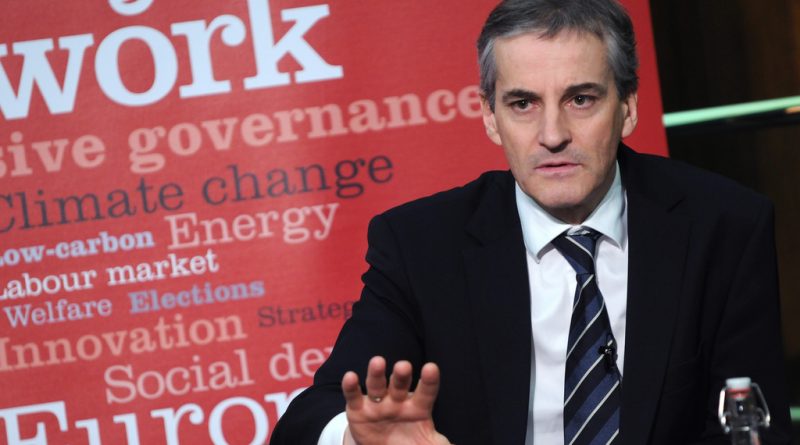Labor Forms Coalition After Norwegian Election
Christopher Benítez Cuartas
Staff Writer
The September 13 parliamentary election in Norway has left the Nordic country in the hands of the Labor Party and its coalition after nearly a decade of a Conservative administration. According to Valg Resultat, the official ballot counting site for Norwegian elections, Prime Minister Erna Solberg was unseated by a 5.9 percent margin on a one-to-one comparison with the incoming prime minister, Jonas Gahr Støre. Though she did not win the overall majority, Solberg gained sufficient votes for a left-wing coalition. Støre will have a plethora of issues to address to a divided nation with a dubious coalition.
The Conservative Party ended up with 36 seats, losing 9, and while the Labor Party ended up victorious with 48, it is currently negotiating a coalition with moderate left-wing parties such as the Center and Socialist Left. These parties’ seats, 28 and 13 respectively, would make up close to half of a three-party coalition. Disagreements on several major issues between these parties, however, heightens the possibility of Labor failing to form a coalition.
One of the big issues of contention between the parties concerns the extraction of oil and gas. In the late 1960s, oil was discovered in the Barents Sea off the North Atlantic coast of Norway. Such resources have since provided Norway with a healthy income and helped finance the welfare state Norway is known for. According to Foreign Policy, the oil and gas sectors employs 6% of Norwegian laborers.
While Solberg insisted on continuing oil drilling despite international warnings regarding climate effects, Financial Times describes that the possible coalition does not have a conclusive answer as to whether drilling will be permitted to continue. The Center Party, led by Trygve Slasvold, insists that Norway’s resources belong to Norway and should be used to develop it, according to Senter Partiet, the Center Party’s official website.
Arbeider Partiet, the Labor Party’s official website, explains that the party is pro-oil, yet aims for a reduction of emissions and an eventual full transition to renewable energy. The goal would be to cut emissions in half by 2030 and eliminate all emissions by 2050 by electrifying oil fields. During the pandemic, however, oil prices dropped, and measures by both the Conservatives in power and the Labor in opposition to support the Norwegian energy industry passed almost unopposed, according to Reuters.
While Norwegians have become individually wealthier than their parents or grandparents, Norway still struggles with internal wealth inequality. Science Norway states that “if the richest had paid tax on their entire income, the tax revenue to the country and the municipalities would have increased by an estimated 52 billion kroner in 2018.” The Labor Party proposes tax cuts for the working class as a major campaign component in hopes to cut the wealth distribution gap.
With the ongoing diversification of Europe through immigration form other parts of the world, the Conservatives under Solberg have pursued, at least according to their manifesto, a
“strict, fair and predictable refugee and asylum policy that limits groundless asylum applications to Norway.” On the other hand, the Labor Party’s website states that we are at “a time when authoritarian forces, nationalism and xenophobia are on the rise,” justifying the need to show integrate Norway both socially and economically into Europe.
The government’s handling of COVID-19 in Norway is viewed by constituents as largely successful and is credited to the Conservatives, with a sharp rise in approval rates between the pandemic’s inaugural timeframe of March-April of 2020 according to Estimite.
One of the major factors in the Conservative’s loss was the recent, spontaneous unpopularity of the outgoing prime minister Erna Solberg over her breaking pandemic rules during her 60th birthday celebrations, Euro News explains. She had dinner at a restaurant with 13 guests at the ski resort town of Geilo, when maximum gatherings allowed for ten.
When asked about the incident by the NRK, Norway’s state broadcaster, the Prime Minister responded “I, who every single day stand and talk about infection control to the Norwegian people should have known the rules better. But the truth is that I haven’t checked the rules well enough, and thus had not realized that when a family goes out together and is more than ten members, then it is actually a super spreader.”

